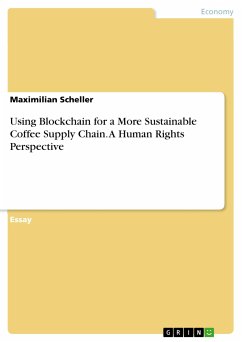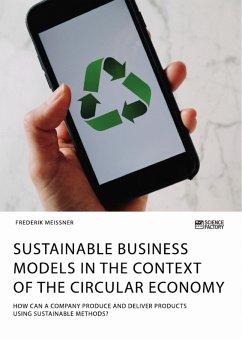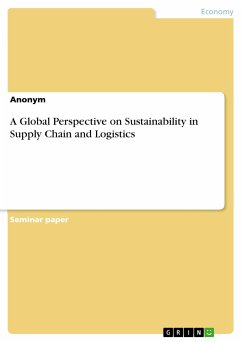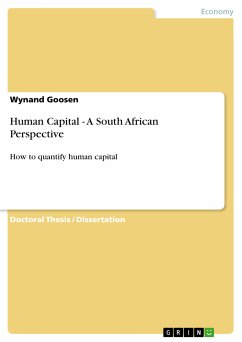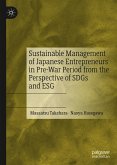Essay from the year 2022 in the subject Business economics - Trade and Distribution, grade: 2,3, University of Mannheim (Chair of Sustainability), course: Business and Human Rights, language: English, abstract: This essay explores the question of how digital technologies can help to solve human rights abuses in the coffee supply chain. First, a brief outline of the coffee supply chain is given as an example. Then, in a second section, the prevailing problems and hurdles in coffee production are illustrated. The third section then looks at possible solutions. Besides a brief mention of the new German supply chain law, blockchain technology is presented as a possibility for a more sustainable supply chain in the view of a human right perspective. In conclusion, the final chapter draws upon the entire topic and summarizes the discussed points. Coffee is one of the most consumed beverages in the world and is considered one of the most important goods in world trade. Thereby, coffee is one of the most traded commodities after oil. Every year, around 168 million bags of green coffee are harvested and sold worldwide. According to estimates, there are about 12.5 million coffee plantations worldwide. A total of about 25 million people are involved in coffee cultivation, processing and trade. 74 percent of the coffee grown worldwide is exported. The largest exporter of green coffee is Brazil with a market share of 40 percent. The coffee industry is worth 200 billion dollars. However, only less than 10 percent of the money remains in the producing countries. As the coffee industry is one of the so-called buyer-driven businesses, the difference in distribution is very strong. Smallholder farmers in particular have a small share and face particular challenges. But how can these inequalities be adjusted? How can the supply chain be made sustainable and fair?
Dieser Download kann aus rechtlichen Gründen nur mit Rechnungsadresse in A, B, BG, CY, CZ, D, DK, EW, E, FIN, F, GR, HR, H, IRL, I, LT, L, LR, M, NL, PL, P, R, S, SLO, SK ausgeliefert werden.

